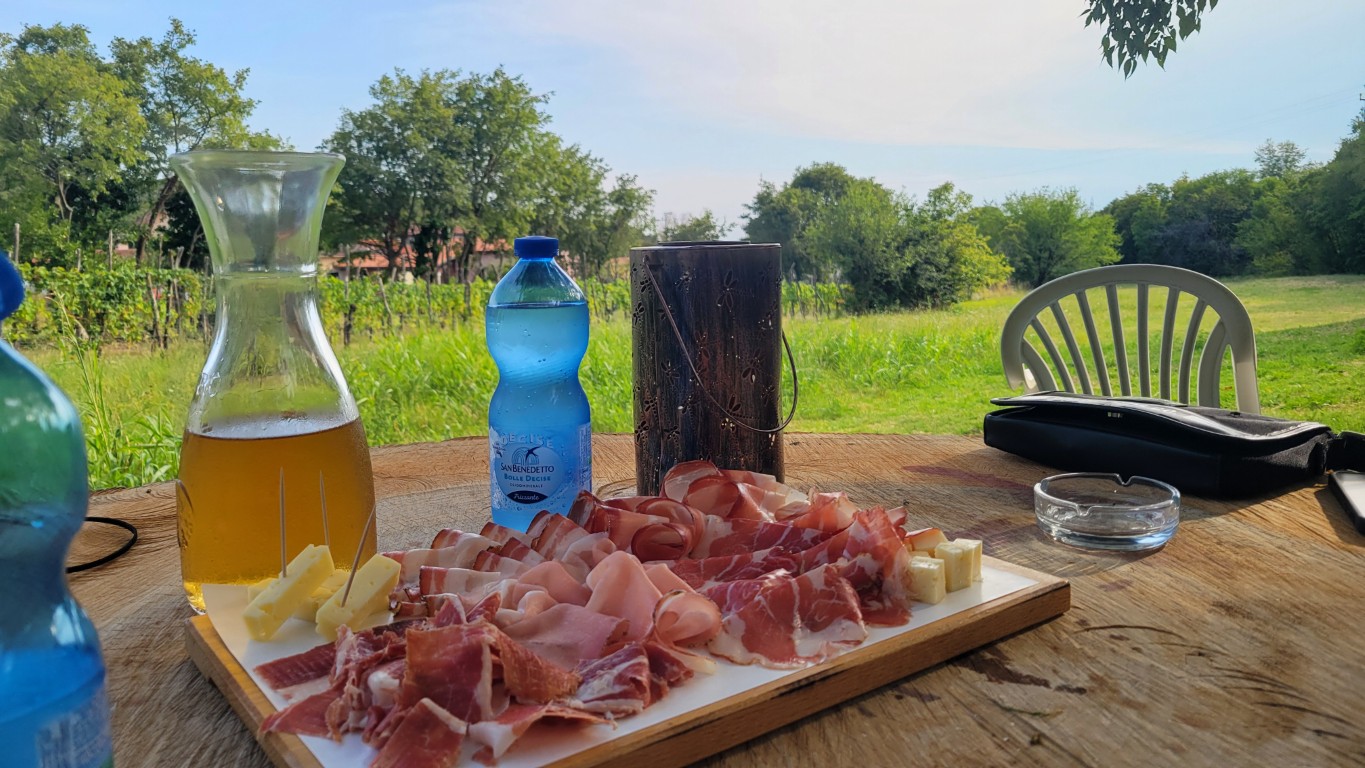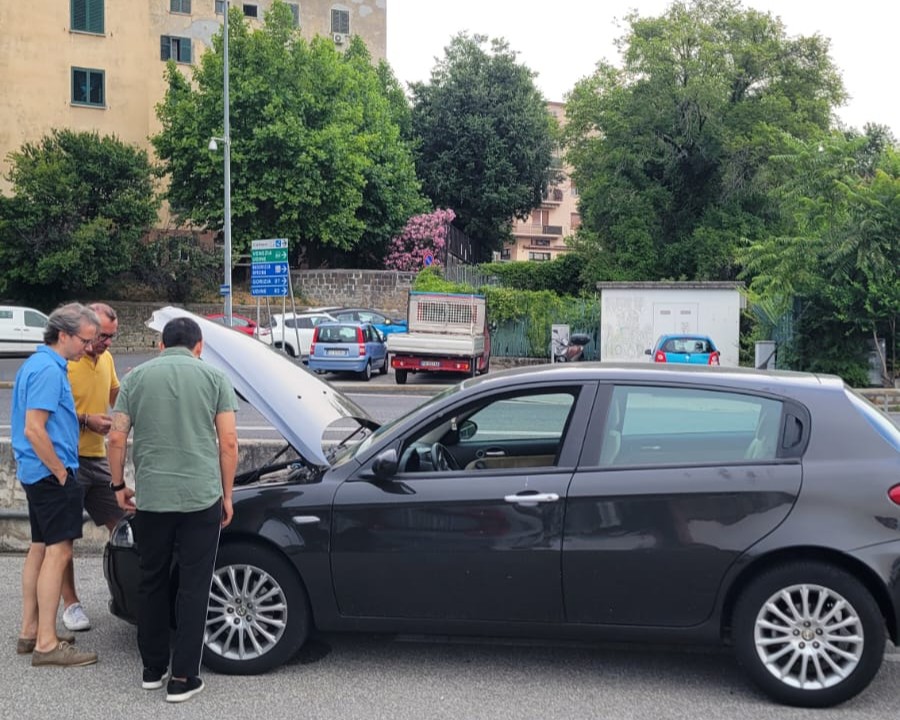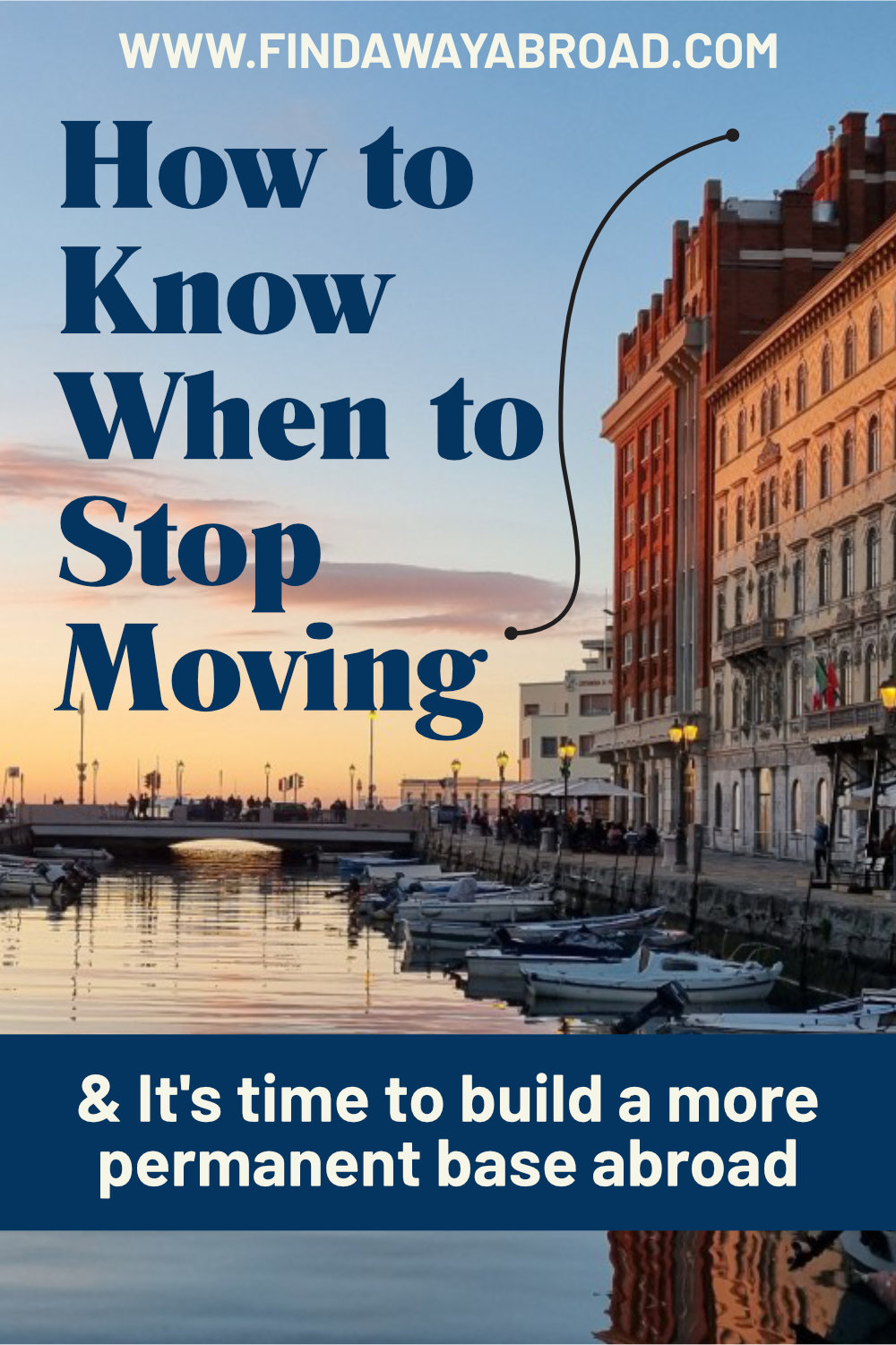I’ll confess. As a perennial nomad I thought this day would never come: the day I decide I want to put down roots and stop chasing the horizon.
Since 18, I’ve travelled the world, visiting more than 80 countries, and living - if you count stays where you have a postal address, gym membership and a favourite bar/hairdresser as sufficient qualifiers - in between 15-20. I’ve moved for work, for love and for adventure. But maybe it’s time to stop packing up my life every 6–18 months and choose a spot to finally call home.
If this sounds like you, then read on dear friends. This is what 20 years of nomadism has taught me about how to know when it might be time to stop moving.
1. When the airport feels like a chore, not a thrill

Once upon a time, I was the queen of last-minute flights. I wore my boarding passes like trophies. The stamps in my passport badges of honour. I prided myself on being able to pack for six months in twenty minutes flat. Or move continents – as I did once from the UK to Zimbabwe – with two days’ notice. That 5am alarm for a cheap Ryanair flight? Bring it on. I’d strut through airport security half asleep, fuelled by bad coffee and the thrill of where I was going next.
But somewhere along the line, the shine wore off. I stopped feeling giddy at the sight of departure boards and started groaning at baggage restrictions. What do you mean I have to fit all of my life into 30kg?
Now, the thought of packing everything into boxes, dragging two suitcases to the airport, queuing bleary-eyed at security… let’s just say it no longer sparks as much joy as it did before.
Don’t get me wrong. I haven’t shelved the passport for good, it’s just that at a certain point, you realise you need to feel as buzzed about the return flight as you do jetting off.
So, when pre-dawn taxis feel like lost sleep, travel shifts from “best part of the journey” to “the exhausting price of admission, and the question “when are you going home?” feels obsolete — that’s when your compass might be pointing to ‘stay.’
2. When you’ve found your people

One of the cruellest ironies of the nomad life is that we’re experts at goodbyes. Every six months you hug someone tight, swear you’ll keep in touch, and hope your friendship survives the distance. It’s one of the reasons I’ve persisted with Facebook for so long. It’s the only way I get to see all of my loved ones in one place.
There’s a special kind of heartbreak in leaving behind a community you’ve built from scratch: the friend who knows your drinks order, the yoga teacher who notices when you miss a class, the neighbour who waves when you walk by or drops off a bag of fruit from their garden.
Even though you can barely string four words of common language together, somehow there’s a bond. These tiny threads weave into a net that catches you when you least expect it.
And every once in a while, you stumble into a community that feels so right, so effortlessly yours, that leaving them feels well… wrong. And when you realize that the thought of moving on from them is harder than the idea of staying put, — if saying goodbye feels heavier than your backpack — you might just have found your reason to stay.
3. When you fall in love with the place itself

We all move for reasons — a job, a romance, a fleeting adventure. Heavens knows, I’ve moved for all three. But the real magic happens when you find yourself in love simply with the place itself. Not because it offers something shiny and new, but because it feels like yours.
I’ve come to realise, it’s not the fanciest places that get under my skin. It’s the ones full of character, who have an unmistakeable identity, a certaint je ne sais quois that defines explanation that draw me in. They may be gritty (I often say I like the ‘shit but good places’), they may involve lots of nature. They may combine the two. But there is a certain feel to them, and a certain feeling I get when I am in them, that lets me know I’m where I should be.
So, when you find yourself strolling familiar streets, not needing Google Maps. When you feel totally content being there on your own. When you love a place without needing it to impress you, yet you turn a corner one evening, and the sunset on the other side of the river stops you in your tracks. That’s when you know.
You know which bakery sells the best bread and which alley to avoid at rush hour. You have a go-to bench in the park where you like to read. You know exactly how the air smells just before the rain, or how the streets hum on a Friday night. You can guide tourists around with aplomb, but you also know the hidden shortcuts they’ll never find. The hole-in-the-wall restaurants, the dive bars with the best vibes and the street corners that never make it into the guidebooks.
When you love a place with the same familiarity you love a person — flaws and all — that’s when you know it has taken root in your heart.
4. When you’ve gone local — quirks and all

Home sneaks up on you when you least expect it. The truest test of belonging is when you start doing things without even noticing they’re “local.”
There's no parking space outside your place in Porto, but instead of driving round the block, as you would do back home, to find a spot, you leave the car double-parked with the hazards flashing and casually take your time to unload groceries like a Tripeiro, completely oblivious to the tailback you've just caused.
Stuck in traffic in Sicily? You honk and shout in Sicilian with same operatic passion as the guy behind you, no longer shocked but part of the chorus. Watching football in a smoky shisha bar in Amman? You’re out of your plastic chair, arms flailing, yelling at the ref with every Jordanian around you, when the national football team is denied a penalty in the dying minutes of the Asia Cup Final.
At that moment, you’re no longer observing a new culture — you’re in it, body and soul. These little habits aren’t just funny anecdotes — they’re proof the place has seeped into your bones. The habits of “back home” fade, replaced by new instincts, and suddenly, this isn’t just where you live. It’s where you belong. You’re a local now. And there’s no going back.
5. When your life admin looks… permanent

Nothing says “I might actually be staying” like a supermarket loyalty card. Or a kitchen full of Tupperware, and the kind of medicine cabinet that could rival a pharmacy.
OK, so it might be more a residency permit, but for the commitment-phobes amongst us, purchasing homeware items and signing up for loyalty schemes are big steps.
These things aren’t glamorous — they’re not the stories you’ll tell at parties — but they matter. They’re the scaffolding of real life, the little commitments that mean you’re investing in a future, not just passing through.
A bank account in the local currency. A doctor who knows your medical history. A lease longer than twelve months. They may not make great Instagram posts, but they’re signs you’ve chosen to invest your time, your money, and your energy into this place, not the next one. And isn’t that what roots are made of?
I recently bought an air fryer and ironing board. They may just be signs I’m getting old. Or they may be signs the ‘old me’ is settling in for the long haul.
6. When going back “home” feels like regression

At first, going “home” between adventures felt like comfort: like slipping into an old pair of shoes — familiar, comforting, easy. A chance to recharge, eat favorite foods, see old friends, and enjoy the ease of understanding everything without effort.
But over time, things changed. After years of adapting to new cultures, learning new languages, and expanding my sense of “normal,” I’d go back “home” and feel like I’d somehow shrunk.
Friends were still talking about the same small dramas. I’d stand in the supermarket overwhelmed by 17 brands of peanut butter, missing the simplicity of markets abroad. What was once familiar now felt alien — like I’d outgrown it.
That’s the cruel twist of reverse culture shock: you can feel like you’ve retrogressed, like the life you left behind no longer fits. After years abroad, the reverse culture shock can feel heavier than the culture shock ever did.
When suddenly the streets you grew up on feel small. Conversations circle around the same routines, and you catch yourself itching to explain how things are done “elsewhere.” And instead of slipping back into an old life, you feel like you’ve regressed, like you’ve stepped into shoes that no longer fit.
That jarring sense of going backwards instead of forwards might be your clearest sign that your true home is no longer where you came from — it’s where you’ve grown into yourself.
Are You Ready to Stop Moving?
They say “when you know, you know.” And maybe that’s true for finding home just as much as it is for falling in love. You don’t stop moving because you’re tired of adventure — you stop because you’ve finally found somewhere that makes staying put feel like the biggest adventure of all.
It’s where you stop ‘doing’, and simply start being.










.png)
.png)